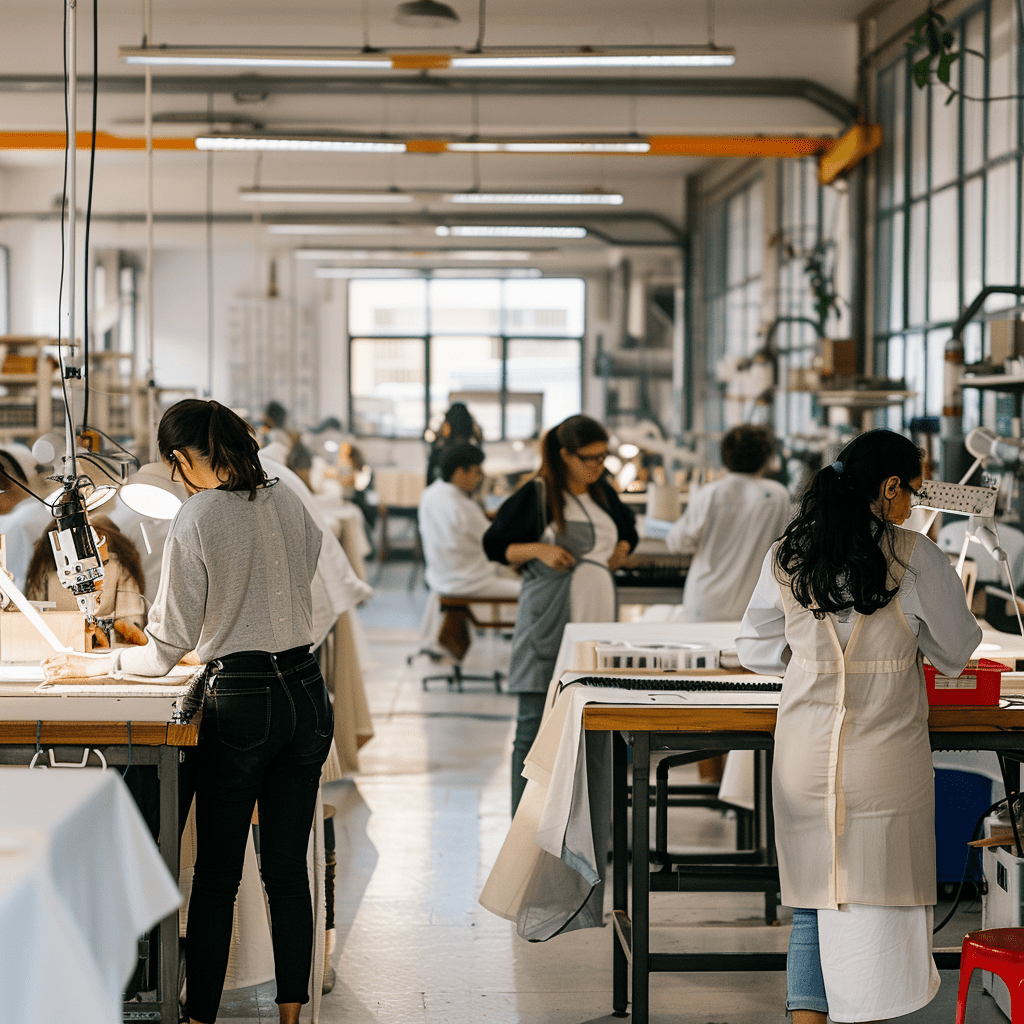
The Ultimate Guide to the Top 10 Portugal Fashion Brand Manufacturers
A curated Guide to Top 10 Portugal Fashion Brand Manufacturers in 2025 that you should know
Portugal has become the premier manufacturing hub for high-end streetwear labels, sustainable brands, and luxury houses. From the Owners Club Hoodie by Represent to performance socks by AFISocks, Portuguese factories combine decades of craftsmanship with modern innovation at competitive prices.
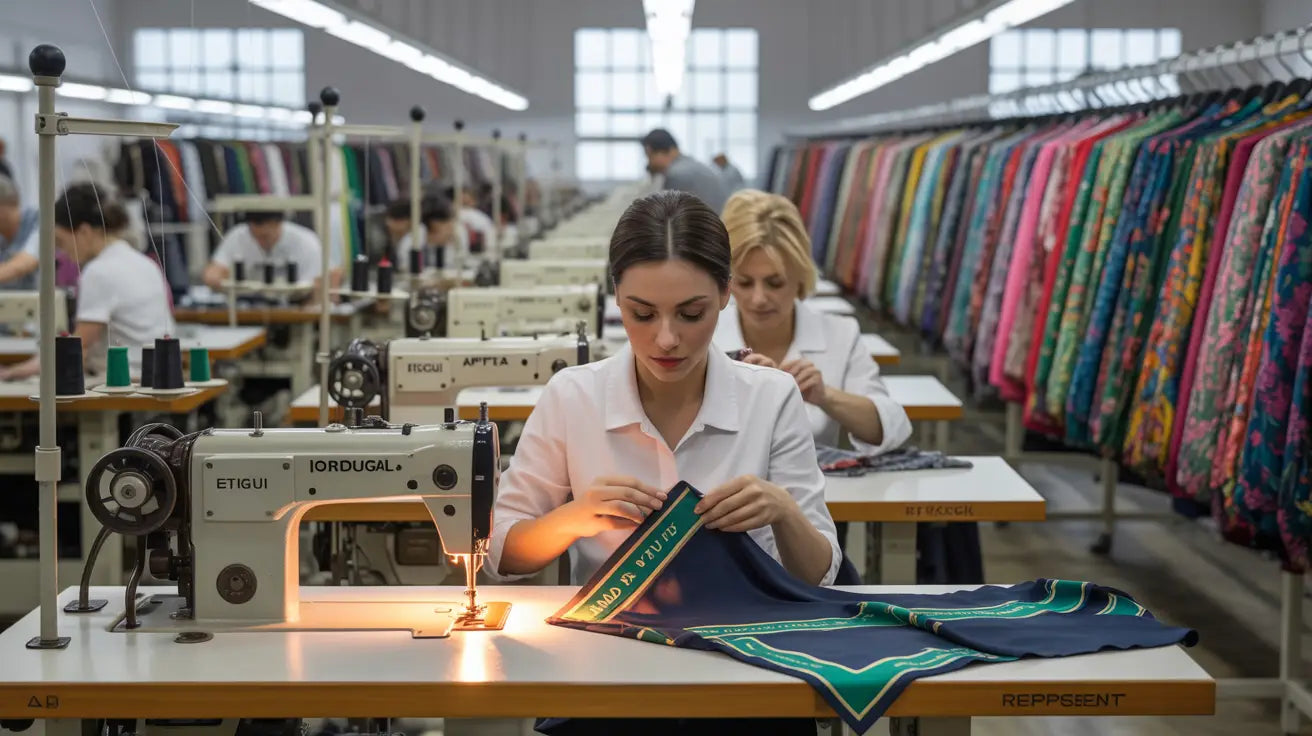
But what makes Portuguese manufacturers stand out? And which ones should your brand work with? This comprehensive guide explores the top 10 Portugal fashion brand manufacturers that are raising industry standards, helping you find the perfect partner for quality fabrics, ethical production, and innovative design.
Why Portugal Dominates Fashion Manufacturing
Portugal has earned its reputation as a manufacturing powerhouse through exceptional craftsmanship, sustainable practices, and technological innovation. The country's clothing brands from Portugal benefit from:
- Centuries of textile heritage combined with modern production techniques
- Strong commitment to ethical manufacturing and sustainability
- Competitive pricing without compromising quality
- Strategic European location for efficient global distribution
- Flexible production capabilities from small batches to large runs
Portugal's Top 10 Fashion Manufacturers
From streetwear giants to sustainable innovators, these Portuguese manufacturers supply some of the world's most coveted fashion pieces. Here are the leaders in quality, innovation, and craftsmanship.
Case Study: Represent (UK Brand, Manufactured in Portugal)
Represent relies heavily on Portugal's extraordinary manufacturing capabilities for premium streetwear. Many Portuguese manufacturers produce heavyweight cotton garments with specialized techniques. The Represent Owners Club Hoodie features double-lined hoods and other premium construction methods.
They also manufacture tailored denim from Japanese selvedge and precision-cut outerwear from Italian wool blends. Their Portuguese operations utilize laser technology for precise pattern placement and water jets for eco-friendly denim finishing.
Popular Products:
- Represent Owners Club Hoodie (best-selling heavyweight hoodie)
- Destroyed Denim Jeans (premium distressed denim)
- Oversized T-Shirts (high-quality cotton)
1. Athleisure Basics – Custom Clothing Manufacturing in Portugal
Athleisure Basics connects you with one of the largest networks of Portuguese manufacturers, delivering premium custom clothing for fashion startups, streetwear labels, and established global brands. Their reliable partners use advanced production technologies including seamless stitching, high-density knitting, and specialized dyeing techniques.
Sustainability is at our core, featuring OEKO-TEX® certified organic cotton, recycled polyester, and eco-friendly blends. Specialized services include garment dyeing, gradient washes, and custom branding (labels, packaging, embroidery, and prints). With factories across Portugal, our network serves everything from small MOQ orders to wholesale production runs.
Popular Products:
- Black & White Hoodies – premium cotton, sustainable, and durable
- Heavy Oversized T-Shirts – perfect for streetwear and athleisure collections
- Drop Shoulder Sweatshirts – modern fit with comfort and style
- Custom Joggers & Sweatpants – tailored for activewear and lifestyle brands
- Leggings & Biker Shorts – performance fabrics with premium finishes
2. AFISocks (Specialized Sock Manufacturer in Portugal)
AFISocks, Portugal's principal sock manufacturer, designs fashionable medical-grade compression socks. Their 360-degree knitting machines create seamless toe closures that resist blistering, while proprietary moisture-wicking blends often include antimicrobial silver yarns.
Their eco-line uses post-consumer recycled nylon and GOTS-certified organic cotton. Special features include custom toe-tip branding and gradient dyeing unavailable with conventional techniques. Their Porto-area factory serves NBA team socks and luxury fashion collaborations with minimum quantities starting at 500 pairs.
Popular Products:
- Luxury Cotton Socks (soft, breathable, durable)
- Custom Branded Socks (for fashion labels and corporate merch)
- Compression Socks (ideal for sports and medical use)
3. Etigui (Custom Labels & Tags Manufacturer)
Etigui elevates brand storytelling through precision label engineering, offering over 200 thread color options for woven labels with 0.3mm stitch density. Their patented eco-label line uses pineapple leaf fibers and mushroom leather alternatives that biodegrade in 90 days.
For luxury clients, they provide hand-stitched leather patches with debossed 24k gold foil. Their Braga-based facility combines traditional loom techniques with laser etching technology, producing everything from Gucci-style woven care labels to Balenciaga-inspired oversized hangtags.
Popular Services:
- Woven brand labels (for inside garment care tags)
- Hang tags (luxury paper, recycled cardstock)
- Leather patches (for denim and outerwear)
4. JEM Clothing (Luxury Knitwear & Sweatshirts)
JEM's fully vertical factory in Guimarães controls the entire process from organic cotton spinning to final dyeing using closed-loop water systems. Their 3D knitting technology creates seamless whole garment constructions that generate 30% less waste than cut-and-sew methods.
They utilize phase-change materials that absorb and release heat to maintain optimal temperature. Their living knit program uses plant dyes that mature in color over time, while pioneering blockchain-tracked knitwear in Portugal.
Popular Products:
- Organic Cotton Hoodies (soft, heavyweight)
- Cashmere Sweaters (luxury knitwear)
- Custom Embroidered Crewnecks
5. JSRT Group (Denim & Activewear Manufacturer)
This BCI-certified denim mill redefines sustainability with laser ozone finishing that reduces water usage by 92% compared to traditional washes. Their self-healing denim uses nano-coatings that repair minor abrasions, while photocatalytic jeans break down pollutants when exposed to sunlight.
The factory's AI-powered pattern system creates custom fits using 200 body measurements. They've developed conductive denim with woven copper threads and temperature-responsive indigo that changes hue with body heat. Their zero-waste program upcycles scraps into bonded insulation for jackets.
Popular Products:
- Selvedge Denim Jeans (premium raw denim)
- Recycled Polyester Joggers (sustainable activewear)
- Custom-fit cargo pants
6. JFG Fashion (Luxury Tailoring & Outerwear)
Operating from a restored 19th-century textile mill, JFG preserves hand-padded quilting techniques for luxury down jackets while using aerospace-grade bonding systems for waterproof seams. They source rare fabrics including fire-resistant wool and photocatalytic titanium dioxide cashmere that self-cleans.
They provide shape-memory tailoring using nickel-titanium alloy threads and deliver made-to-measure coats within 10 days using robotic pattern cutters. Innovative designs include solar-panel-lined trenches and wool infused with hemoglobin that absorbs CO2.
Popular Products:
- Wool Overcoats (winter luxury coats)
- Structured Blazers (tailored fits)
- Lambskin Leather Jackets
7. JMT Textiles (Sustainable Fabrics & Apparel)
JMT established Portugal's first textile recycling plant, breaking down post-consumer garments into new fibers without quality loss. Their BioKnit technology grows t-shirts from bacterial cellulose in fermentation tanks, eliminating waste entirely.
They've developed self-dyeing cotton implanted with color-producing genes and photosynthetic dresses with oxygen-producing algae. Their modular garment system allows consumers to replace individual panels rather than discarding entire items.
Popular Products:
- Organic Cotton T-Shirts
- Recycled Polyester Hoodies
- Bamboo Fabric Loungewear
8. Tintex Textiles (Innovative & Smart Fabrics)
Tintex's biometric smart fabrics measure heart rate through capacitive yarns while thermoelectric knits convert body heat into battery power. Their NASA-developed phase-change materials maintain optimal temperature in extreme conditions, and self-repairing membranes automatically seal punctures in outerwear.
For athletes, they create muscle-compression zones with varying elasticity gradients based on kinesiology research. Their pollution-fighting jackets neutralize smog particles through catalytic coatings, while recent breakthroughs include holographic fabrics and bioluminescent eveningwear.
Popular Products:
- Moisture-wicking Activewear
- Thermal-regulating Knitwear
- Recycled Nylon Swimwear
9. Sofima (Luxury Lingerie & Swimwear)
Sofima creates lingerie using 3D body-scanning systems for perfect fit. Their Adaptive Underwire technology uses shape memory alloys that modify support throughout the day. Fabrics release skincare elements through micro-encapsulated retinol and hyaluronic acid.
Their temperature-regulating bras incorporate PCM microbeads that cool or warm as needed. They've developed biodegradable elastic from natural rubber and cups infused with skin-nourishing minerals. AI quality control detects stitching flaws smaller than one millimeter.
Popular Products:
- Silk Lingerie Sets
- Recycled Bikinis
- Adjustable Support Bras
10. Jorvik Textiles (Streetwear & Urban Fashion)
Jorvik's digital printing facility achieves photographic-quality graphics with waterless dye-sublimation technology. Their augmented reality tees trigger digital content through woven conductive thread antennas, while self-lacing hoodie systems use smart memory polymers that tighten when temperatures drop.
They've pioneered crowdsourced manufacturing where customers vote on limited-run designs. Their blockchain authentication system verifies streetwear authenticity via NFC chips, while experiments include plantable clothing with seed-embedded hems and air-purifying graffiti jackets.
Popular Products:
- Oversized Hoodies
- Distressed Denim Jeans
- Graphic Print T-Shirts
How to Choose the Perfect Portuguese Manufacturer for Your Brand
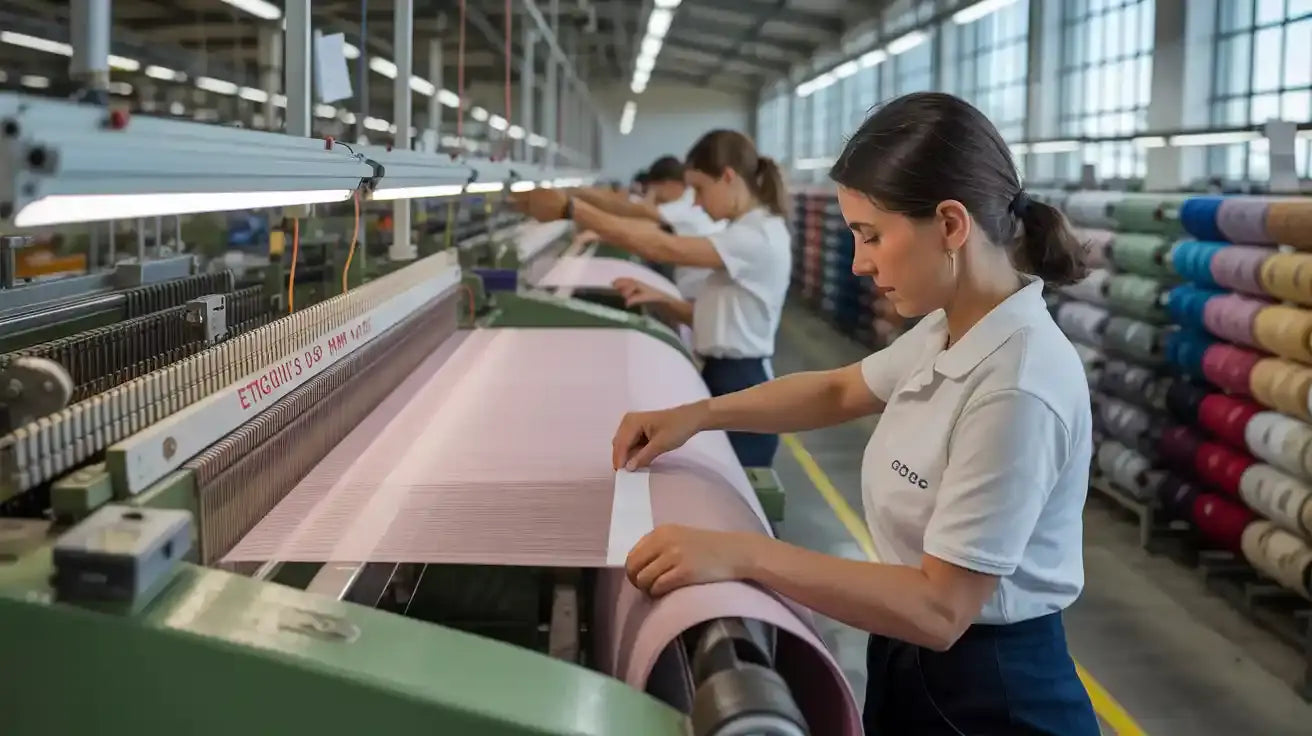
Not every factory fits every brand, even though Portugal offers world-class manufacturing. The key is matching your specific needs with a manufacturer's specialties and capabilities. These essential factors will help you find the right manufacturing partner.
1. Prioritize Material Quality & Fabric Innovation
Explore beyond conventional fabric options. Portugal's leading Portuguese manufacturers offer self-healing denim with nano-coatings and algae-infused yarns that moisturize skin. Verify organic cotton is GOTS-certified and recycled materials comply with Global Recycled Standards.
2. Understand Minimum Order Quantities (MOQs)
Manufacturing requirements vary significantly. AFISocks starts sampling from 500 pairs, while luxury knitwear producers might require 1,000+ units. Emerging brands should partner with factories specializing in smaller production runs (100-500 units), while larger brands benefit from economies of scale.
3. Verify Ethical Certifications & Production Standards
Portugal's top facilities maintain multiple certifications:
- GOTS for organic textiles
- OEKO-TEX for chemical safety
- BCI for responsible cotton
- SA8000 for fair labor practices
Ethical manufacturers like JSRT Group welcome transparency and unannounced factory visits to audit working conditions.
4. Evaluate Customization Capabilities
Different manufacturers offer varying customization levels - from Etigui's 0.3mm woven labels to Jorvik's AR-enabled conductive thread printing. Sportswear brands need sublimation printing experts, while luxury houses require hand-stitched leather patch specialists.
5. Analyze Logistics & Lead Times
Portugal's geographic advantage enables 3-5 day shipping to EU markets and 7-10 days to the US East Coast. However, complex techniques like JFG's shape-memory tailoring may require 8-12 weeks production time. Always build buffer time for potential shipping delays.
Final Thoughts: Why Portugal Leads Fashion Manufacturing
Portugal uniquely delivers premium quality, ethical production, and exceptional value in fashion manufacturing. The country's magical blend of artisan craftsmanship and cutting-edge technology produces results that exceed luxury standards at accessible prices.
Portugal's competitive advantages extend far beyond cost savings:
- Sustainability is inherent, with factories like JMT Textiles pioneering closed-loop systems that recycle garments into new fibers
- Speed-to-market outperforms Asian alternatives for Western brands
- Specialization ensures you work with true experts in specific product categories
- Strategic location provides efficient access to global markets
From Represent's Owners Club Hoodie, OffWhite's heavyweight hoodies to Sofima's AI-fitted lingerie, Portuguese manufacturers demonstrate that ethical production and luxury quality aren't mutually exclusive - they're the standard. The question isn't whether you can afford to manufacture in Portugal... it's whether you can afford not to.
Frequently Asked Questions
Manufacturing & Production
What types of clothing can be manufactured in Portugal?
Portugal's manufacturing ecosystem supports virtually all clothing categories including:
- Streetwear and athleisure (hoodies, sweatshirts, joggers)
- Premium denim and casual wear
- Luxury knitwear and tailored garments
- Technical activewear and performance gear
- Lingerie, swimwear, and intimate apparel
- Accessories including socks and labels
The diversity of Portuguese manufacturers ensures specialized expertise across all fashion segments.
What are typical minimum order quantities in Portugal?
MOQs vary significantly based on manufacturer specialization:
- Startup-friendly factories: 50-200 pieces per style
- Medium-scale production: 300-500 pieces
- Large manufacturers: 1,000+ pieces
- Specialized items (socks, labels): 500+ units
Many Portuguese brands work with manufacturers offering flexible MOQs to accommodate growing businesses.
How long does production typically take in Portugal?
Production timelines depend on complexity:
- Standard garments: 4-8 weeks
- Complex technical wear: 8-12 weeks
- Sampling phase: 2-4 weeks
- Shipping to EU: 3-5 days
- Shipping to US: 7-10 days
Portugal's strategic location provides faster turnaround than Asian manufacturing hubs.
Can Portuguese manufacturers handle small batch production?
Yes, many Portuguese factories specialize in small batch production, particularly those working with emerging clothing brands from Portugal. Manufacturers like Athleisure Basics and JEM Clothing offer MOQs as low as 50-100 pieces, making Portugal accessible for startups and limited collections.
Quality & Sustainability
What quality standards do Portuguese manufacturers maintain?
Portuguese manufacturers adhere to rigorous quality standards including:
- ISO 9001 for quality management systems
- OEKO-TEX Standard 100 for chemical safety
- Global Organic Textile Standard (GOTS)
- Global Recycled Standard (GRS)
- SA8000 for social accountability
These certifications ensure consistent premium quality across all Portugal brands clothing production.
How sustainable is Portuguese clothing manufacturing?
Portugal leads in sustainable fashion manufacturing through:
- Closed-loop water systems reducing consumption by 90%+
- Textile recycling facilities processing post-consumer waste
- Organic and recycled material integration
- Renewable energy adoption in factories
- Ethical labor practices and fair wages
This commitment makes Portuguese brand clothing increasingly popular among eco-conscious consumers.
What sustainable materials are commonly used in Portugal?
Portuguese manufacturers extensively work with eco-friendly materials:
- GOTS-certified organic cotton
- Recycled polyester from plastic bottles
- Bamboo, hemp, and linen fibers
- Tencel and lyocell from sustainable wood pulp
- Innovative materials like pineapple leaf fiber and mushroom leather
Do Portuguese factories offer eco-friendly dyeing options?
Yes, leading Portuguese manufacturers employ sustainable dyeing techniques including:
- Digital printing reducing water usage by 95%
- Laser and ozone finishing for denim
- Natural plant-based dyes
- Closed-loop water systems recycling dye water
- Low-impact chemical dyes meeting OEKO-TEX standards
Business & Logistics
Why should I choose Portugal over Asian manufacturing?
Portugal offers distinct advantages over Asian manufacturing:
- Superior quality control and craftsmanship
- Faster production times and shipping
- Easier communication across similar time zones
- Strong intellectual property protection
- Ethical manufacturing transparency
- "Made in EU" premium branding appeal
While costs may be slightly higher, the value proposition for Portuguese brands is significantly better.
What are the shipping advantages of manufacturing in Portugal?
Portugal's geographic location provides significant logistics benefits:
- 3-5 day shipping to major European markets
- 7-10 day transit to US East Coast
- Major ports in Lisbon, Leixões, and Sines
- Excellent air freight connections through Lisbon and Porto
- Simplified customs within EU markets
How do I start working with a Portuguese manufacturer?
The typical process involves:
- Research and shortlist manufacturers matching your needs
- Submit initial inquiries with your project details
- Request and evaluate samples
- Negotiate terms, pricing, and timelines
- Provide technical packs and design specifications
- Approve prototypes before full production
- Coordinate quality control and shipping
What makes Portuguese clothing manufacturers different?
Portuguese manufacturers stand out through their unique combination of:
- Centuries of textile heritage and craftsmanship
- Cutting-edge technology and innovation
- Strong environmental and social responsibility
- Flexibility accommodating both small and large orders
- Strategic European location with global access
- Competitive pricing without quality compromise
This unique blend makes Portuguese manufacturers the preferred choice for discerning fashion brands worldwide.

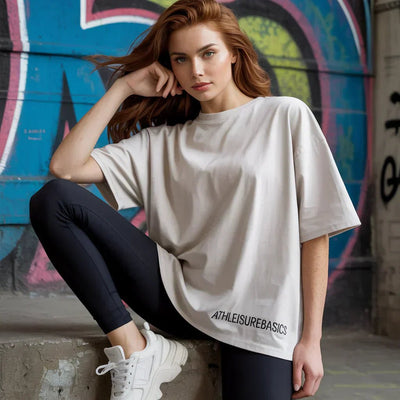
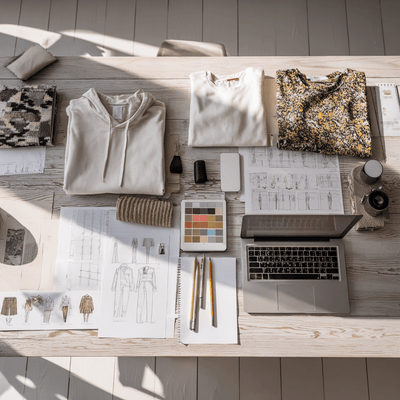
Leave a comment
This site is protected by hCaptcha and the hCaptcha Privacy Policy and Terms of Service apply.